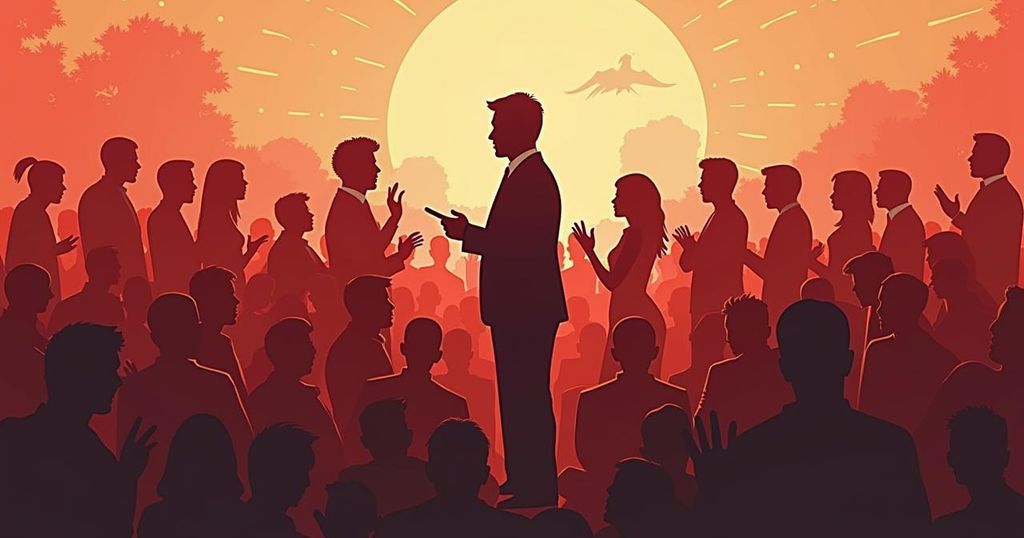Mozambicans Cast Their Votes in Significant Presidential Election
Mozambicans are currently voting in a general election that is crucial for the country’s future, as the ruling Frelimo party seeks to maintain its dominance. Daniel Chapo, a relatively unknown candidate, aims to introduce change following the departure of President Filipe Nyusi. The election signals a potential generational shift, as the Frelimo candidate is not a veteran of the independence war. Analysts note the urgent need for the next president to tackle pervasive poverty and economic challenges, exacerbated by recent insurgent activity in the country.
Mozambicans are currently participating in a pivotal general election, with the ruling Frelimo party, which has maintained power for an impressive 50 years, anticipated to retain its position. President Filipe Nyusi, who has reached the conclusion of his two-term limit, was one of the first individuals to cast his vote when polling stations opened at 07:00 local time (05:00 GMT). The Frelimo party has nominated 47-year-old Daniel Chapo as their presidential candidate. Although he was previously a relatively obscure figure, he is now positioning himself as a facilitator of change within the party. Facing him in the election are independent candidate Venâncio Mondlane, former rebel leader Ossufo Momade of the primary opposition Renamo party, and Lutero Simango from the Mozambique Democratic Movement (MDM). This election is regarded as a crucial turning point for Mozambique, as it marks the first occasion in which the Frelimo candidate has not been a veteran of the independence struggle. Chapo, who was born two years after Mozambique gained independence from Portugal in 1975, is viewed by many as having no direct involvement in the party’s corruption controversies. In the capital city of Maputo, President Nyusi voted amidst rainy conditions and urged voters to remain calm. He stated, “I would also ask that no group of citizens agitates or threatens others, that everything happens in peace and tranquillity and that we avoid announcing the results ahead of time,” as reported by the AFP news agency. With over 16 million citizens registered to vote, the younger population seems particularly inspired by the elections, as reflected by 22-year-old student Augusto Ndeve Pais: “I feel hopeful… People my age are worried about the future of our country, so I think they will vote,” he shared with Reuters. Analysts assert that irrespective of who emerges victorious, the next president’s foremost challenge will be to create economic opportunities in a nation where 62% of its citizens live in extreme poverty, existing on less than $1.90 (approximately £1.45) per day. Mozambique, still grappling with the aftermath of a 16-year civil war that concluded in 1992, had anticipated gains from the discovery of extensive gas reserves in the north. However, an Islamist insurgency, which began in Cabo Delgado in 2017, has stalled many lucrative liquefied natural gas projects, which have not yet evolved despite the presence of Rwandan and South African military forces. The counting of votes is set to commence once polling stations close at 18:00 local time, with official election results expected to be announced in approximately two weeks.
The election in Mozambique holds significant historical importance, as it not only symbolizes the political dynamics following decades of rule by the Frelimo party but also showcases a generational shift represented by the candidacy of Daniel Chapo, a younger leader. Since gaining independence from Portugal in 1975, Mozambique has been under Frelimo’s governance, witnessing both progress and challenges, particularly in economic development. The country struggles with high poverty rates and ongoing security issues, particularly from insurgent activities in its northern regions, which have hindered potential economic growth linked to natural resource extraction. The outcome of this election will be critical in determining the next steps for governance and economic strategies for Mozambique’s future.
The current election in Mozambique is a decisive moment as citizens weigh the prospect of renewing their leadership under the long-dominant Frelimo party while potentially ushering in a new era with a fresh candidate, Daniel Chapo. With pressing socio-economic issues and security challenges looming, the elected leader’s ability to address poverty and revitalized economic opportunities will be paramount. The election’s outcomes will not only reflect the public’s aspirations for change but will also determine the trajectory of Mozambique’s political landscape.
Original Source: www.bbc.com




Post Comment